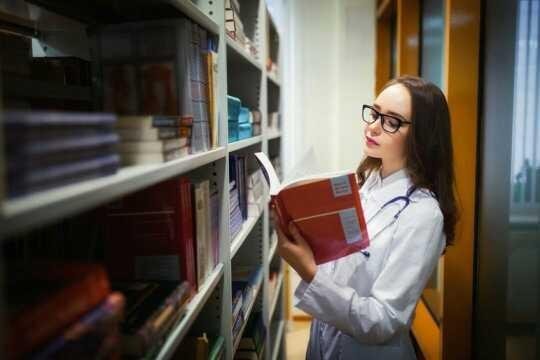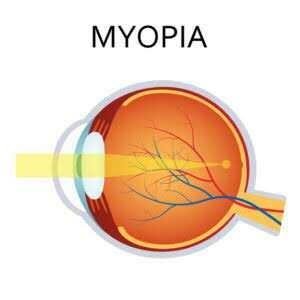
The researchers say their study offers "sturdy proof" that more time spent in schooling is a risk aspect for myopia, and that the findings "have essential implications for instructional practices."
Myopia, or short-sightedness, is a main cause of visual impairment worldwide. Currently, 30-50% of adults inside the united states and Europe are myopic, with levels of 80-ninety% said in school leavers in some East Asian international locations.
Based on existing developments, the quantity of human beings tormented by myopia worldwide is expected to increase from 1.4 billion to 5 billion by using 2050, affecting about half of of the sector's populace. Almost 10% of these people (round nine million) will have excessive myopia, which carries a greater hazard of blindness.
Many studies have suggested strong links between training and myopia, but it isn't clean whether or not increasing exposure to education reasons myopia, myopic kids are extra studious, or socioeconomic role results in myopia and better levels of training.
So researchers primarily based at the university of Bristol and Cardiff college set out to determine whether training is an immediate (causal) risk aspect for myopia, or myopia is a causal danger factor for greater years in education.
Using a technique called Mendelian randomisation, they analysed forty four genetic editions related to myopia and sixty nine genetic variants associated with years of training for 67,798 women and men aged forty to 69 years from the United Kingdom Biobank database.
Analysing genetic statistics in this manner avoids some of the issues that afflict traditional observational research, making the outcomes less prone to unmeasured (confounding) elements, and consequently much more likely to be dependable.
An affiliation this is observed the usage of Mendelian randomisation consequently strengthens the inference of a causal courting.
After taking account of probably influential elements, Mendelian randomisation analyses counseled that every extra 12 months of schooling became associated with extra myopia (a refractive errors of ?0.27 dioptres a yr).
To position this into context, a university graduate from the UK with 17 years of education would, on average, be at least ?1 dioptre more myopic than someone who left college at sixteen (with 12 years of training). This stage of myopia could mean needing glasses for riding.
By means of assessment, there has been little proof to signify that myopia led humans to stay in training for longer.
The researchers factor to a few have a look at obstacles. For instance, uk Biobank participants were proven to be extra extraordinarily knowledgeable, have more healthy life, and record fewer fitness troubles as compared with the overall united kingdom populace, which can also have affected the consequences. However, there was little evidence that this may explain their findings.
"This examine suggests that publicity to extra years in training contributes to the growing occurrence of myopia, and highlights a want for in addition studies and dialogue approximately how academic practices is probably progressed to reap higher results with out adversely affecting vision," they conclude.

In a related editorial, Professor Ian Morgan on the Australian country wide university and associates say the evidence suggests that it isn't most effective genes however environmental and social elements that may have principal outcomes on myopia.
They point to East Asia, in which early severe academic pressures mixed with little time for play exterior has brought about almost 50% of children being myopic by way of the stop of number one faculty, in comparison with much less than 10% in a study of British youngsters.
"Early onset lets in greater time for myopia to progress to high and doubtlessly pathological myopia," they warn, and that they argue that education systems "have to exchange to help shield the visible fitness of destiny generations."
In a connected opinion piece, take a look at author Denize Atan also factors to proof displaying that point spent exterior in formative years partially protects towards the development of myopia.
Although reduced exposure to herbal sunlight hours may not be the sole mechanism to give an explanation for the association between schooling and myopia, she writes, "given the blessings of time spent outside on mental fitness and the protection it presents in opposition to obesity and continual diseases, we would all benefit from spending more time outdoor."